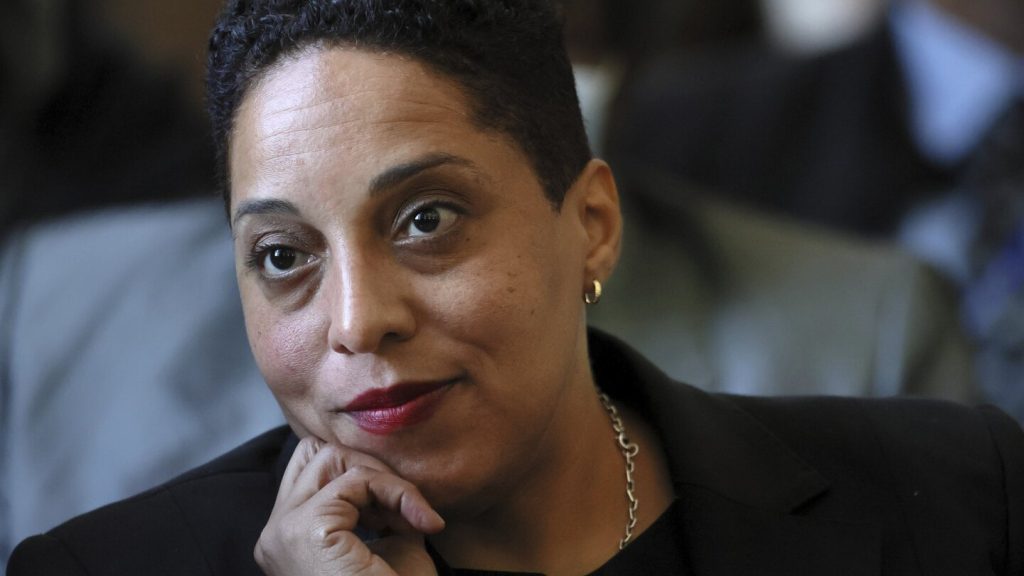In a recent announcement by federal authorities, former Democratic prosecutor Kim Gardner from St. Louis admitted to using thousands of dollars in public funds to reimburse herself after being fined for mistakes made while prosecuting Republican Governor Eric Greitens. Gardner, who was the first Black circuit attorney in the city, resigned last year amidst criticism for her handling of cases, low conviction rates, and clashes with police and conservatives. She has entered into a pretrial diversion agreement to avoid criminal prosecution as long as she repays the $5,004 in public funds and follows other stipulations of the agreement. Gardner was known for her progressive approach to prosecution, advocating for diversion programs and holding police more accountable.
One of Gardner’s high-profile cases was the prosecution of Greitens in 2018 on charges of felony invasion of privacy, which stemmed from allegations that he had taken a compromising photo of a woman during an affair. Despite the charge being eventually dropped, the case faced scrutiny and led to the conviction of one of Gardner’s investigators. She also received a written reprimand from the Missouri Supreme Court for mishandling documents related to the case. Gardner’s attorney claimed that any errors were unintentional and attributed them to a heavy workload during the investigation. However, the diversion agreement revealed that Gardner had directed her employees to issue checks from a contingent fund in her office to reimburse herself, even though she was not entitled to the additional compensation.
The U.S. Attorney’s office got involved in the case due to the city’s receipt of federal funds, leading to the resolution that Gardner would avoid prosecution by repaying the misused public funds. U.S. Attorney Sayler A. Fleming described the outcome as just and fair under federal criminal law. Gardner’s attorney, Harvard professor Ronald Sullivan Jr., stated that Gardner opted to enter into the agreement to save the court’s time and resources. At the time of her resignation, Gardner was facing an ouster effort by Missouri Attorney General Andrew Bailey, a Republican, who sought to limit her responsibilities by allowing the governor to appoint a special prosecutor for violent crimes. This move was met with opposition from Gardner’s supporters and critics alike.
Despite her controversial tenure as circuit attorney, Gardner made efforts to reform the criminal justice system by advocating for diversion programs, accountability for police misconduct, and the release of wrongfully convicted inmates. She was part of a movement of progressive prosecutors who sought to address systemic injustices within the legal system. While her resignation marked the end of her term in office, the recent agreement to repay misused public funds effectively closes the chapter on this particular controversy. Gardner’s case serves as a reminder of the challenges faced by public officials in upholding integrity and accountability while navigating the complexities of the criminal justice system and political pressures.


